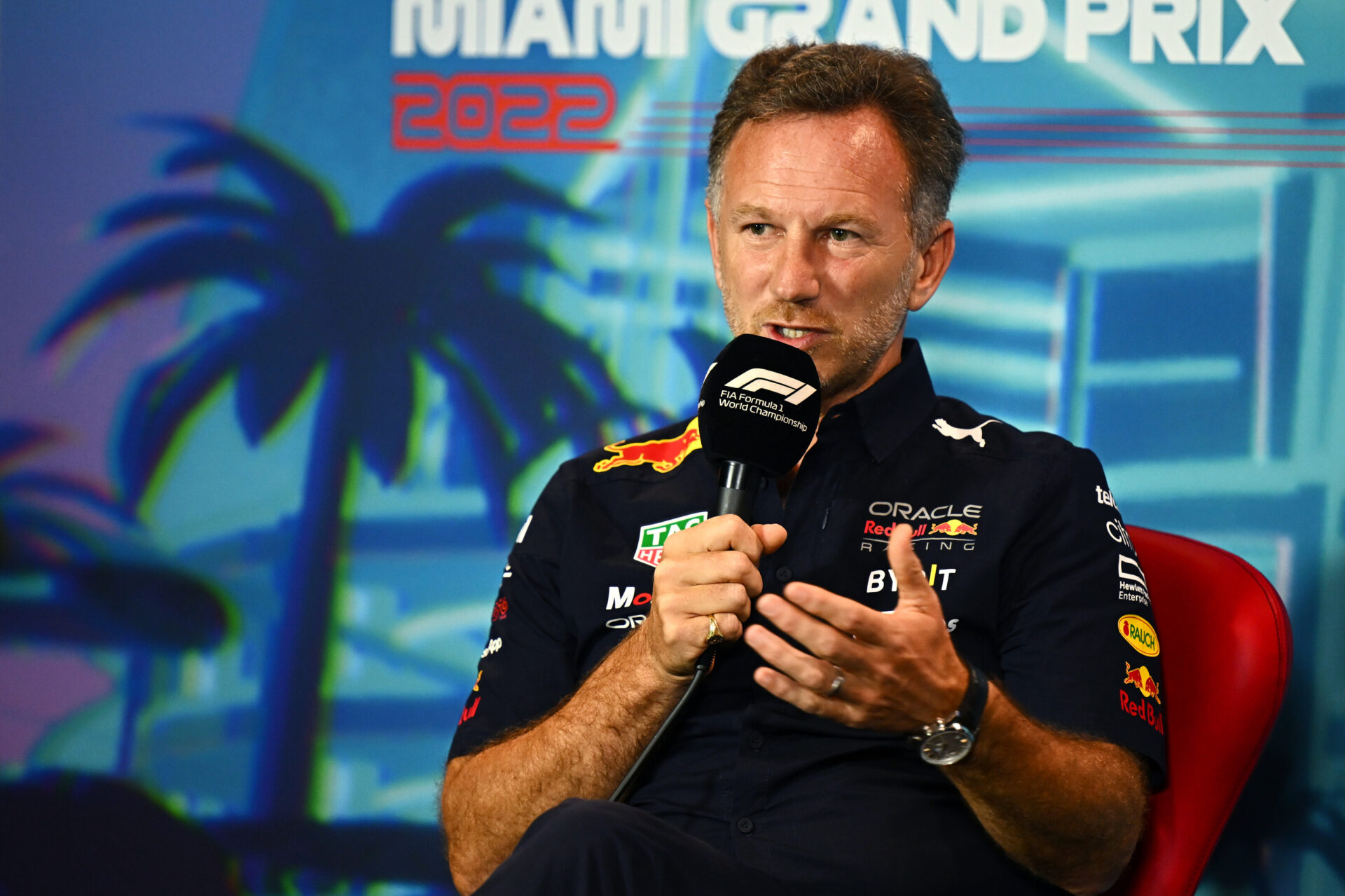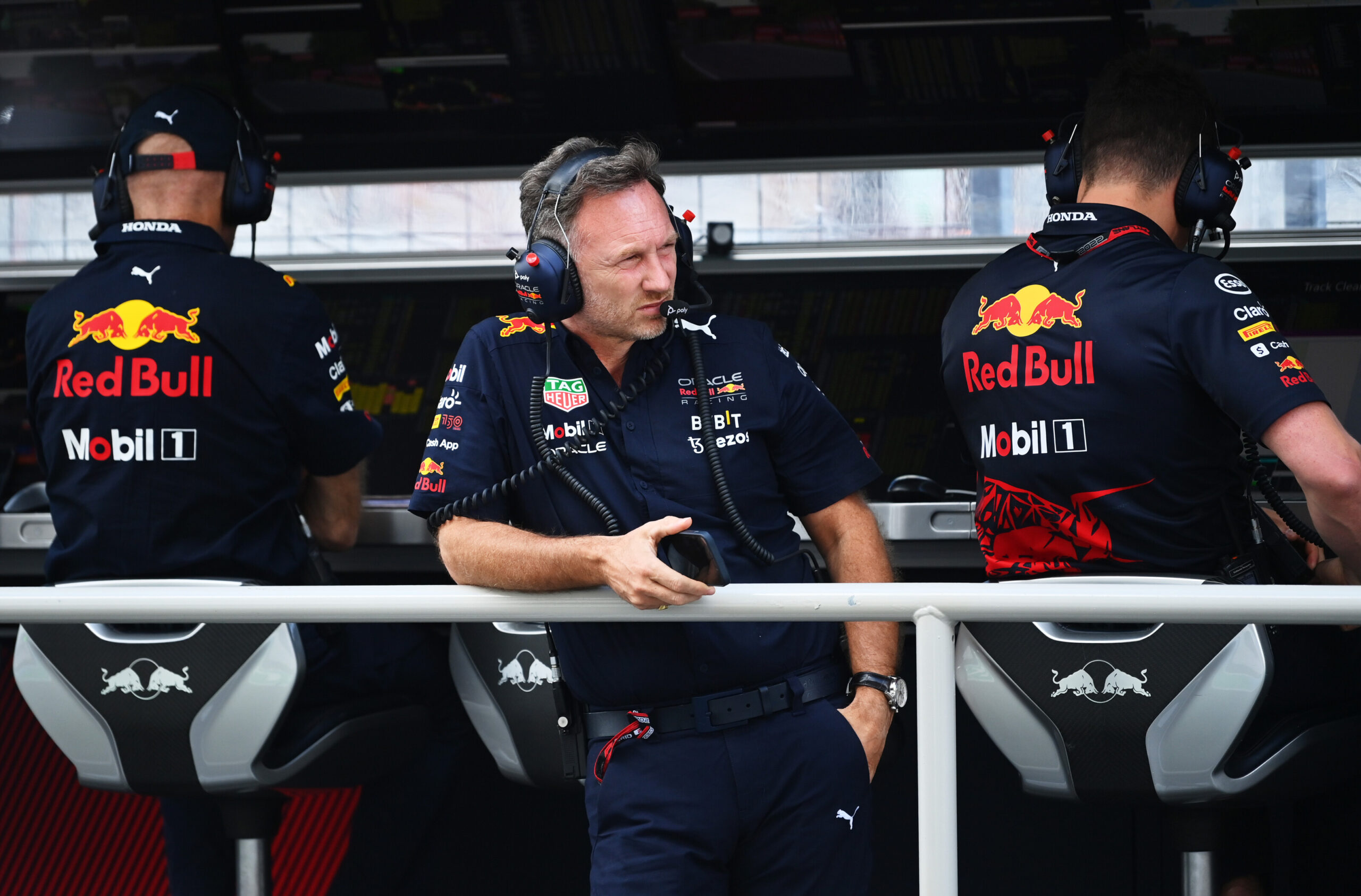F1 News: Red Bull Chief Reveals How Much They Pay To Enter The 2023 Season – “It Was Incredible”
Red Bull Racing has announced that it will have to pay a significant amount to the FIA for winning the 2022 constructor’s championship. In accordance with the rules of the sport, all teams must pay a flat fee of £502,000 ($617,687) for the 2023 season. In addition to this fee, teams must pay an additional £5,027 ($6,174) for each point they earned in the previous season. However, if a team wins the championship, this amount increases to £6,034 ($7,411) per point.
As a result of winning the championship, Red Bull will have to pay a total of £5,080,000 ($6,242,636), as the team earned 759 points in the 2022 season. The runner-up, Ferrari, will have to pay £3,300,000 ($4,038,083) for its 554 points.
Red Bull chief Christian Horner was quick to comment in this:
“I didn’t realise how much we had to pay the FIA for the points. I got the bill the other day, it was incredible.”
This payment follows an awkward exchange between Red Bull team chief Christian Horner and FIA President Mohammed Ben Sulayem when Horner went to collect the constructor’s championship trophy. Sulayem brought up Red Bull’s cost cap saga just before Horner was handed the trophy, and interestingly, the amount the team will have to pay for the 2023 season is just less than the $7 million it was fined for breaching the cost cap in 2021.
According to the consumer price index, the entry fees for the 2023 season have increased from last year. The basic fee to enter the 2022 season was $572,278, and the championship-winning team, Mercedes, had to pay $5,770 per point. This increase in fees will likely come as a blow to the teams, who are already under significant financial pressure as a result of the ongoing COVID-19 pandemic. However, the FIA has stated that the increased fees are necessary in order to ensure the continued stability and success of the sport. It’s also assumed that this isn’t part of the cost cap.
The downside of winning the F1 championship?
The cost of the superlicense. Each driver/team pay a flat fee for their license, but you also have to pay upwards of $5,000 for each point scored in the previous season 😬
Red Bull is looking at an entry fee of $6M for 2023
— Toni Cowan-Brown (@ToniCowanBrown) December 12, 2022
Twitter users were keen to comment on this revelation:
“That’s a bizarre rule!” one user posted with another arguing: “I see it as an equalisation measure, and the more of them we have, I think the better. That said, it’s a drop in the ocean in terms of the spending gaps between the front and back of the grid isn’t it?”
A third asked: “Any idea why they came up with that? Seems odd. Politics presumably rather than any logical reason?”
A fourth, splitting fans, simply said: “Puts the cheat fine into perspective.”




